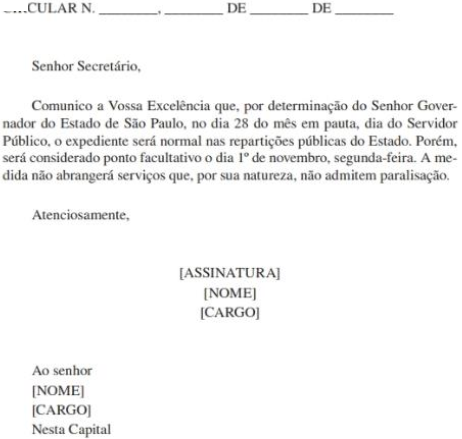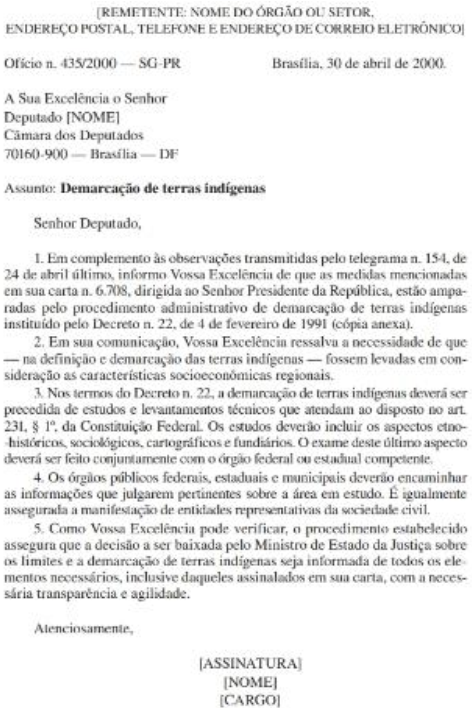Questões de Concurso
Comentadas para contemax
Foram encontradas 2.240 questões
Resolva questões gratuitamente!
Junte-se a mais de 4 milhões de concurseiros!
Don´t worry, this decision will be duck soup for him.
The expression ―duck soup” means:
Technology has turned people into couch potatoes.
The expression ―couch potatoes” means:
Sobre o conceito de internet. Leia, reflita:
Crescimento das redes de computadores
As redes de computadores têm crescido explosivamente. A partir dos anos 1970, a comunicação via computador transformou-se em uma parte essencial de nossa infraestrutura. A ligação de computadores em rede é usada em cada aspecto dos negócios, incluindo propaganda, produção, transporte, planejamento, faturamento e contabilidade. Conseguentemente, a maioria das corporações tem múltiplas rede. As insatituições de ensino, em todo os níveis, do ensino fundamental à pós-graduação, estão utilizando redes de computadores para fornecer a estudantes e professores o acesso instantâneo a informações em bibliotecas online em todo mundo. Orgãos governamentais em níveis federal, estadual e municipal utilizam redes, assim como organizações militares. Em resumo,as redes de computadores estão em toda parte.
O crescimento contínuo da Internet global1 é um dos fenômenos mais interessantes e empolgantes em redes. Em 1980, a Internet era um projeto de pesquisa que envolvia algumas dezenas de sites. Hoje, ela cresceu e se tornou um sistema de comunicação produtivo que alcança milhões de pessoas em todos os países povoados do mundo. Muitos usuários já têm acesso à Internet de alta velocidade por meio das conexões a cabo (cable modem), DSL, fibra óptica e tecnologias sem fio.
O crescimento das redes de computadores também gera um impacto econômico. As redes de dados têm disponibilizado novas formas de comunicação entre os indivíduos e já mudaram a comunicação no mundo dos negócios. Além disso, uma indústria inteira surgiu e desenvolve tecnologias de rede, produtos e serviços. A popularidade e a importância das redes de computadores têm produzido novos empregos para pessoas especializadas em redes. As empresas precisam de colaboradores para planejar, adquirir, instalar, operar e gerenciaros sistemas de hardware e software que compõem as redes de computadores e as inter-redes. A adoção do conceito de computação em nuvem demonstra que a computação está mudando das máquinas locais para centros de dados remotos.
Como resultado, a programação de computadores não está mais restrita a computadores
individuais; agora os programadores desenvolvem aplicações que se comunicam por
meio de internet.
Fonte: Comer, Douglas E. Redes de computadores e internet [recurso eletrônico] / Douglas E. Comer ; tradução: José Valdeni de Lima, Valter Roesler. – 6. ed. – Porto Alegre : Bookman, 2016.
A Internet se configura atualmente como uma das principais ferramentas de comunicação do mundo. Sobre o
supracitado. Aponte a alternativa correta:
Sobre Cultura Organizacional. Leia, reflita e responda:
“A cultura organizacional resulta do compartilhamento, pelas pessoas de uma mesma organização, de costumes, crenças, ideias pré-estabelecidas, regras e tabus que se cristalizam na forma de modelos mentais, fornecendo um modo de encarar, interpretar e adaptar‐se ao mundo. Cada organização tem uma cultura única; quando ela consolida‐se, tornando‐se uma espécie de personalidade coletiva ou “jeitão”, confere uma identidade aos seus membros, que passam a ter uma visão compartilhada do mundo que os rodeia e do lugar que nele ocupam.
[...] Ao longo do tempo, a cultura de uma empresa se consolida na forma de uma identidade cultural, que é reconhecida pelos seus integrantes – gestores e funcionários em geral”.
Fonte: Johann, Silvio. Comportamento organizacional. 1 ed. São Paulo: Saraiva, 2013.
Sobre o texto supracitado, identidade cultural de uma empresa é composta pelo (a):
Sobre Processo Administrativo. Analise a seguinte situação hipotética:
Carlos XYZ servidor público estável perdeu o cargo em virtude de sentença judicial transitada em julgado, mediante processo administrativo em que lhe foi assegurado ampla defesa e procedimento de avaliação periódica de desempenho.
Nesse sentido (da situação hipotética), a expressão processo administrativo tem conotação:
Leia, reflita e responda. (Assinale apenas a alternativa correta):

Fonte: Martino, Agnaldo Português Esquematizado: gramática – interpretação de texto - redação oficial - redação discursiva. Coordenador Pedro Lenza – 8. ed. – São Paulo: Saraiva Educação, 2020.
Conforme estudos sobre a Redação Oficial, questiona-se:
O conteúdo do documento é referente a elaboração de um (a):
Leia, reflita e responda. (Assinale apenas a alternativa correta):

Fonte: Martino, Agnaldo Português Esquematizado: gramática – interpretação de texto - redação oficial - redação discursiva. Coordenador Pedro Lenza – 8. ed. – São Paulo: Saraiva Educação, 2020.
Conforme estudos sobre a Redação Oficial, questiona-se:
O conteúdo do documento é referente a elaboração de um (a):